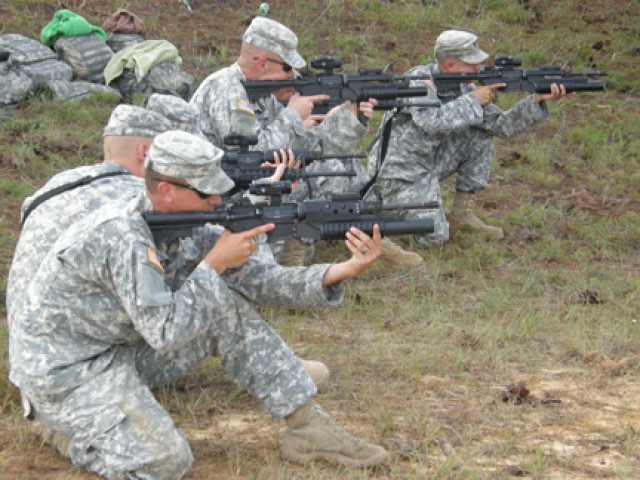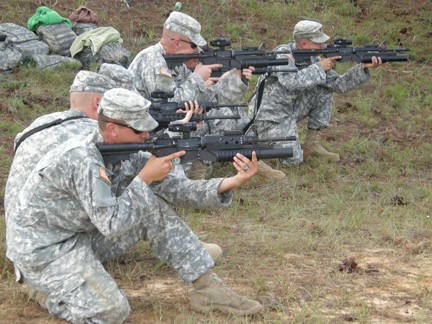FORT POLK, La. -- Members of the 519th Military Police Battalion, 1st Maneuver Enhancement Brigade and the Directorate of Emergency Services Special Reaction Team participated in a marksman observer course on Fort Polk Aug. 16 through Sept. 3.
The information Soldiers learn in the course is invaluable and will more than likely be used in a law enforcement capacity. The Soldiers are all present or future SRT members, explained James Scott, an SRT instructor for the course. Each student who attends the course is selected by his or her unit. Scott and his team of instructors teach the course at least once per year at Fort Polk.
The entire course is three weeks long and consists of two phases. Phase one takes two weeks and prepares Soldiers for clearing buildings in low- and high-risk situations. Clearing a building means a systematic search of each room, "clearing" it of anything that may cause a threat.
In phase two, however, the students are taught about "rifles, long guns and how to be marksman observers," Scott said. The second phase is one week long and offers just as much critical information as the first phase.
Pfc. Kevin Malone, a student in the SRT marksman observer course, has been happy with his training. Malone is a gunner with the 272nd Military Police Company, 519th MP Bn. When asked about the difference between the two phases, Malone responded that "rather than learning about tactics and clearing buildings, you're learning about marksmanship and proper firing techniques. We're also learning about gathering distance and range information."
The turnover rate is high in this course. Phase one usually begins with about 30 students, with only 26 students remaining at the end of the phase. When those 26 students begin phase two, the turnover rate becomes even higher with only 12-18 students total graduating from the entire course, explained Scott.
Scott wants to ensure that each person who takes his course graduates because they earned it. Students are recycled if they are unable to meet the standards or qualifications of the course. If the student is unable to complete a specific task or skill after being recycled, then the student is dropped from the course. The students who pass all the critical requirements are graduated and sent back to their respective units to use the skills they've learned.
The skills the students are learning are critical to law enforcement personnel and members of certain military units. Better be careful, though, you definitely don't want to be caught in these graduates' crosshairs.


Social Sharing